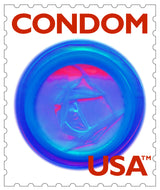HOW DO YOU GET HIV
HIV is found in specific human body fluids. If any of those fluids enter your body, you can become infected with HIV.
Which Body Fluids Contain HIV?
HIV lives and reproduces in blood and other body fluids. We know that the following fluids can contain high levels of HIV:
*Blood
*Semen (cum)
*Pre-seminal fluid (pre-cum)
*Breast milk
*Vaginal fluids
*Rectal (anal) mucous
Other body fluids and waste products-like feces, nasal fluid, saliva, sweat, tears, urine, or vomit-don’t contain enough HIV to infect you, unless they have blood mixed in them and you have significant and direct contact with them.
Most Common Ways HIV is Spread
-
Unprotected Sex
-
Vaginal or anal sex without a condom or PrEP (pre-exposure prophylaxis).
-
Anal sex carries a higher risk than vaginal.
-
-
Sharing Needles
-
Using or sharing needles, syringes, or other drug injection equipment.
-
-
From Mother to Child
-
During pregnancy, childbirth, or breastfeeding (without treatment).
-
-
Contaminated Blood Transfusions
-
Rare in countries where blood is screened, but still a risk in some areas.
-
-
Needle Stick Injuries
-
Healthcare workers exposed to HIV-positive blood through accidental needle sticks.
How You Don’t Get HIV
-
Hugging, kissing, or shaking hands.
-
Sharing food, drinks, or utensils.
-
Using the same toilet or swimming pool.
-
Being bitten by mosquitoes.
Protect Yourself
-
Use condoms every time.
-
Get tested regularly.
-
Don’t share needles.
-
Take PrEP if you're at high risk.
-
Make sure partners are tested and know their status.
-
-
-






Leave a comment